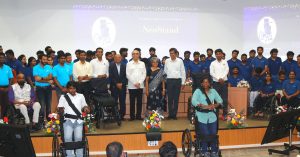As Rumours Lead to Lynchings, This New WhatsApp Feature Could Help Prevent Violence
WhatsApp said that this new feature will assist the process of reducing “unwanted forwards into important group conversations”.

In a significant development, WhatsApp has recently announced that it will roll out an optional feature called “Only Admins” which will permit only administrators to publish messages in their respective groups.
These admins, however, can allow other group members to publish messages, provided they are also added as administrators.
Speaking to The Indian Express, officials at WhatsApp said that this new setting would assist the process of reducing “unwanted forwards into important group conversations.”
This is a positive development for law enforcement in India. Many WhatsApp groups have been associated with disseminating unverified information, rumours and fake news that has led to outbreaks of violence. With this new feature in place, the police only need to track down the group admin. Moreover, the group admin has the authority to limit who can publish in the group.
“One way people use groups is to receive important announcements and information, including parents and teachers at schools, community centers, and non-profit organizations. We’ve introduced this new setting so admins can have better tools for these use cases,” the company said.
For the Assam Police force, which recently faced a lot of flak for being unable to prevent the mob lynching of two young men following a WhatsApp forward which accused them of being ‘child lifters,’ this is a positive development.
Responding to a slew of incendiary posts on social media, the Assam Police began employing what they call ‘soft policing’ tactics.
One facet of this ‘soft policing’ tactic is local beat cops infiltrating WhatsApp groups. Embedding themselves in these groups by befriending group administrators, it becomes easier for the police to spot troublemakers. It already has a dedicated cyber cell to monitor Facebook and Twitter, but tracking WhatsApp is a lot harder because of its tough encryption features.

Another facet of their soft policing tactics is sending local policemen to weekly rural markets (haats), where they encounter students, parents, and teachers, and influence them to become their eyes and ears regarding any potentially inflammatory activity on social media.
Also Read: When Public Servants Stand Up For You: 5 Ways They Are Battling Fake News
“We have been asking our force to educate people about the greater good if they lead us to people misusing social media. This strategy has helped us make arrests quickly in cases of lynching, moral policing, and posting of hate messages,” said Kuladhar Saikia, the Director-General of Police (DGP), to The Hindu.
(Edited by Gayatri Mishra)
Like this story? Or have something to share? Write to us: [email protected], or connect with us on Facebook and Twitter.
NEW: Click here to get positive news on WhatsApp!
This story made me
-
97
-
121
-
89
-
167
Tell Us More
We bring stories straight from the heart of India, to inspire millions and create a wave of impact. Our positive movement is growing bigger everyday, and we would love for you to join it.
Please contribute whatever you can, every little penny helps our team in bringing you more stories that support dreams and spread hope.



















